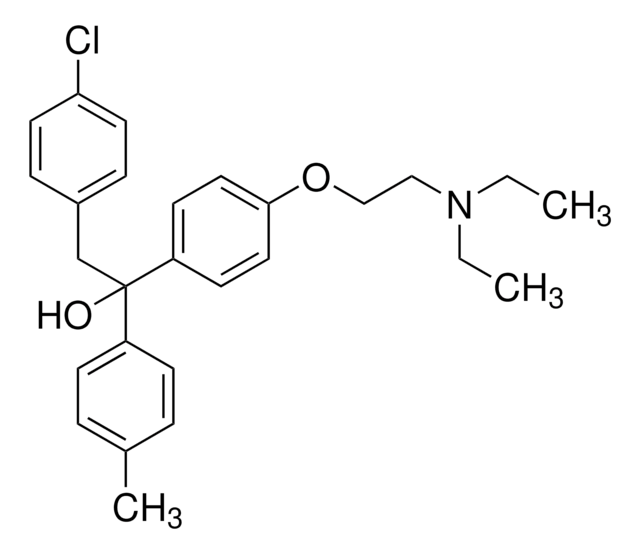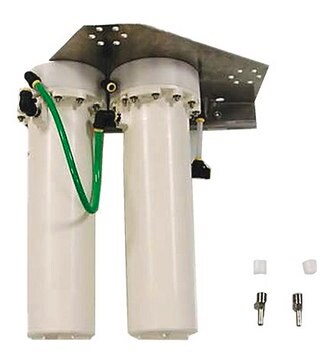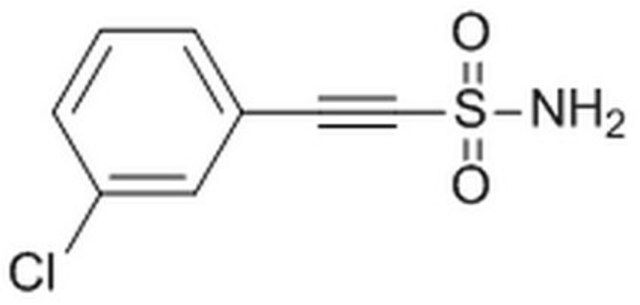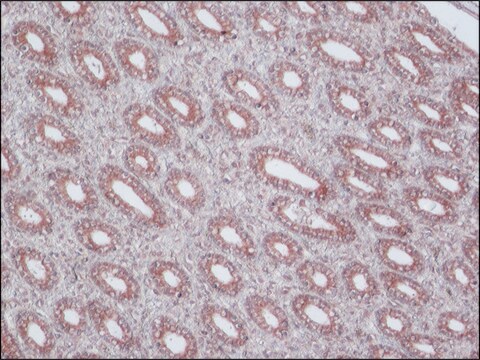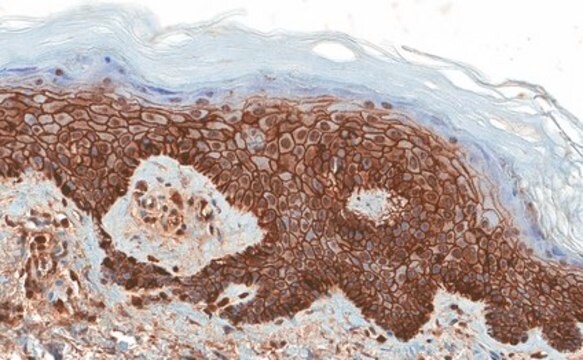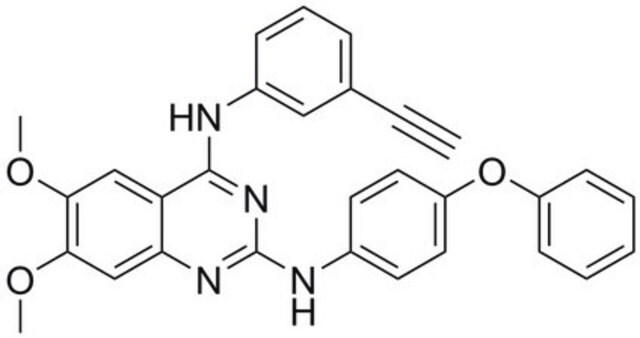CBL218-I
Anti-Keratin K3/K76 Antibody, clone AE5
clone AE5, from mouse
Synonyme(s) :
65 kDa cytokeratin, Cytokeratin-3, CK-3, Keratin-3, K3, Type-II keratin Kb3
About This Item
Produits recommandés
Source biologique
mouse
Niveau de qualité
Forme d'anticorps
purified immunoglobulin
Type de produit anticorps
primary antibodies
Clone
AE5, monoclonal
Espèces réactives
rabbit, bovine
Technique(s)
immunofluorescence: suitable
immunohistochemistry: suitable
western blot: suitable
Isotype
IgG1κ
Numéro d'accès NCBI
Numéro d'accès UniProt
Conditions d'expédition
wet ice
Modification post-traductionnelle de la cible
unmodified
Informations sur le gène
human ... KRT3(3850)
Description générale
Immunogène
Application
A representative lot was used by an independent laboratory in Keratin 3 expressed epithelial cells on the surface of submerged and AL explants, indicating that they were derived from limbal progenitor cells via migration.
A representative lot was used by an independent laboratory in Rabbit epithelial Keratin lysate. (Schermer, A, et al. (1986) J. Cell Biol., 103:
A representative lot was used by an independent laboratory in rabbit corneal tissue lysate. (Cooper, D., et al. (1986) J. Biol. Chem., 261:
A representative lot was used by an independent laboratory in human limbal stem cells cultured in medium supplemented with human EGF. (Sharifi, A.M., et al. (2010) Biocell.
A representative lot was used by an independent laboratory in rabbit corneal and limbal tissues, limbal explant, and epithelial outgrowth on human AM.
A representative lot was used by an independent laboratory inRabbit corneal epithelial Keratin cells. (Schermer, A, et al. (1986) J. Cell Biol., 103: 49-62).
Structure cellulaire
Cytokératines
Qualité
µµ
Description de la cible
Liaison
Forme physique
Stockage et stabilité
Autres remarques
Clause de non-responsabilité
Vous ne trouvez pas le bon produit ?
Essayez notre Outil de sélection de produits.
Code de la classe de stockage
12 - Non Combustible Liquids
Classe de danger pour l'eau (WGK)
WGK 1
Point d'éclair (°F)
Not applicable
Point d'éclair (°C)
Not applicable
Certificats d'analyse (COA)
Recherchez un Certificats d'analyse (COA) en saisissant le numéro de lot du produit. Les numéros de lot figurent sur l'étiquette du produit après les mots "Lot" ou "Batch".
Déjà en possession de ce produit ?
Retrouvez la documentation relative aux produits que vous avez récemment achetés dans la Bibliothèque de documents.
Notre équipe de scientifiques dispose d'une expérience dans tous les secteurs de la recherche, notamment en sciences de la vie, science des matériaux, synthèse chimique, chromatographie, analyse et dans de nombreux autres domaines..
Contacter notre Service technique

